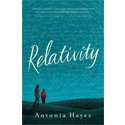 IN BRIEF:
IN BRIEF:
A powerful novel that resonates with emotional authenticity in challenging some universally held ‘truths’ about how and why people hurt newborn babies
Details, Details:
ISBN: 9780670078585
ISBN-10: 0670078581
Format: Paperback
Number Of Pages: 368
Published: 24th June 2015
Publisher: Penguin Australia
RRP:
What the back cover says:
Ethan is a bright young boy obsessed with physics and astronomy who lives with his mother, Claire. Claire has been a wonderful parent to Ethan, but he’s becoming increasingly curious about his father’s absence in his life, wanting to fill in the gaps.
Claire’s life is centred on Ethan; she is fiercely protective of her talented, vulnerable son, and of her own feelings. When Ethan falls ill, tied to a tragic event from when he was a baby, Claire’s tightly held world is split open.
On the other side of the country, Mark is trying to forget about the events that tore his family apart. Then a sudden and unexpected call home forces him to confront his past, and the hole in his life that was once filled with his wife Claire and his son Ethan.
When Ethan secretly intercepts a letter from Mark to Claire, he unleashes long-suppressed forces that – like gravity – pull the three together again, testing the limits of love and forgiveness.
Thoughts:
As soon as I read Benjamin Law’s profile piece on Antonia Hayes, I knew I had to read Relativity.
While the novel itself is a work of fiction, it is also semi-autobiographical.
You see, when Hayes was a new mother, only 19 years of age, her then partner (and father of the child) shook the six week old baby so hard that he sustained a severe brain injury.
The baby, Julian, survived but was left with serious developmental delays.
Four years later, Hayes started work on what would become the first draft of Relativity. Writing teacher, Jeanette Winterson advised her ‘to write from the wound’ – and the pain poured forth onto the page.
It is these sections – the ones written from direct experience – which are the most powerful in the novel.
Hayes writes with visceral authenticity about the panic and confusion that follows an experience of extreme trauma.
Before you hear any words, you can hear the panic. It surfaces as an irregularity of breath, a strain of vocal cords, a cry, a gasp. Panic exists on a frequency entirely its own. Air into air, particle by particle, panic vibrates through the elastic atmosphere faster than the speed of sound.
But it’s not all pain. The relationship between Ethan and his mother Claire is beautifully drawn.
When Ethan looked at his mum, he saw another universe – a world intact, of soothing shapes and soft textures, of beautiful angles and the warmest light. His universe.
What sort of person could harm a baby? It would be easy to dismiss a child abuser as a monster. But in Relativity, Hayes goes beneath the surface. The truth is – anyone can make a terrible decision in the heat of the moment. This does not excuse the abuser, but it helps us to understand them as a human being, guilty of an entirely preventable crime.
Mark couldn’t pinpoint the moment he’d lost control; he didn’t understand how it happened. It was like standing on a train platform and doing what we all imagine: that universal morbid urge. The train approaches. You look down at the tracks. You think to yourself, I could easily throw myself down there… Everyone thinks about it, feels that flickering impulsion. It’s like a cognitive itch you shouldn’t scratch, the way the brain assess risk. So you stop yourself. You make a choice. You choose to live.
But this novel isn’t born entirely of personal experience. Hayes has done her research. Ethan is obsessed with physics and cosmology and there’s an extraordinary level of scientific detail in this book. Hayes goes to great lengths to make connections between the scientific and the human world, and explain the theories behind scientific ideas such as time travel. For me, these were occasionally baffling, but that is perhaps more a reflection of my un-scientific brain, than the writing itself. A more scientific mind may appreciate the way Hayes uses cosmological metaphor to provide a fresh perspective on the human condition. Ultimately, science is a good foil for one of the key themes of the book..
There were no universal truths, just views of the world yet to be proven wrong.
Overall, Relativity is a brave and powerful book. For Hayes, ‘writing from the wound’ must have hurt like hell. But I suspect it was also tremendously healing.
For more information on Relativity, visit Penguin Australia

2 Comments
Deborah
Oh, lovely review and I’m becoming increasingly keen to read this book. I wasn’t sure if I’d find the subject matter palatable. I’m not a mother but get too easily drawn into novels and thought I might have struggled with this, but it sounds so beautiful….
Deb
cassandrahamer@hotmail.com
Hi Deb. Thanks for reading and commenting! Yes – the subject matter is tough and the scenes that deal specifically with the main trauma are incredibly get wrenching. But the book does focus more on the fall-out and the child/parent relationship. Cassie
Comments are closed.